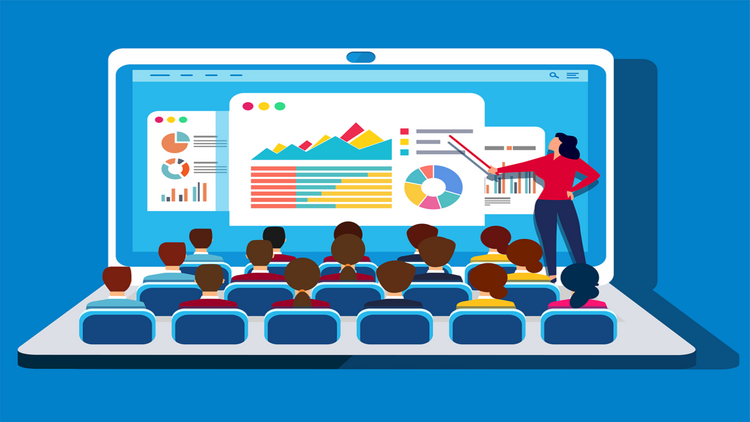Learning Management Systems: Pre and Post Covid

There is an Arabic idiom that says: “Seek knowledge even if you have to travel to China”. While these days we may reach China within a few hours, this wasn’t the case 1400 years ago. Traveling to China took months not to mention the dangers along the road. Luckily, we’re in the 21st century. You don’t have to go to China (unless you want to) to seek knowledge. Right now, all you need is a mobile and an internet connection.
Learning and educating oneself has been a continuous process since the dawn of time. Humans are always eager to learn about the universe and how it works. But getting the information wasn’t always as easy as today. What we can know nowadays within 15 minutes could’ve taken 6 months a 1000 years ago. More leaps are taken these days and the learning process has been improved, lately by using LMSs.
To dive more into the concept of the LMS, grab your mobile, check your internet connection and follow my lines.
What is LMS?
Learning Management System (LMS) is software used by learning institutions and businesses to manage the training and educational content. While this term can be used for small course management systems, it is typically applied to large-scale platforms that are used to advance the teaching-learning experience.
Why LMS?
In the time pre-Covid, LMSs were used as a self-study system to enhance the skills of the individuals. You need a course to learn something new? Do you can find that through an LMS. Want to prepare for a certificate, LMS got your back Jack. But during and post-Covid, the necessity has presented itself for large-scale LMS as social distancing was mandated. Schools, colleges, and enterprises were in need of a system that could facilitate the teaching-learning process and thus, enters the LMS.
Types of LMS
- Cloud-Based: Usually follows the concept of SaaS (software as a service). This LMS is hosted on the Cloud and courses can be accessed from anywhere at any time using a username and a password.
- Self-Hosted: Usually requires downloading software to access the contents of the system. Also, upgrades are paid for by the user.
- Desktop Application: This type requires the installation of software on the user’s machine but the content can be accessed from multiple devices.
- Mobile Application: This type of LMS can be accessed via mobile and from any mobile. You can access the content on the go.
Benefits of LMS
There can be many benefits to using an LMS. We’ll list some of them in this article:
- Monitoring performance and progress.
- Increase learning accessibility.
- Personalize the learning experience.
- Effective distribution of the learning material.
- Centralize the learning process.
- Easily updating the learning material.
What to Look For in an LMS?
While LMSs are important, it’s not enough to just create an LMS or have one. Certain aspects have to be taken into consideration when developing or using an LMS. These aspects are:
- Simple and easy to use: The LMS should be simple, straight to the point, and easy to use even for a first-time user. It should also be accessible from all devices.
- Accessibility: Be it a classroom, a bus, or the street, using a mobile or a laptop, the LMS should be accessible for all users at all times with no regard to physical limitations or disabilities.
- Integration: The LMS should be integrated with other tools. One of these tools is the ability to integrate the content with GoogleDrive.
- Provides Personalized Learning: The content of the LMS should adapt to the student’s needs, not the other way around.
- Offers Interactive learning: The LMS should encourage the experimental learning process. An example of this is a game-based learning experience.
- Provides a Collaborative Environment: Be it a video to promote the iterative improvement or forums to encourage communication, the LMS should allow a collaborative environment to exist.
- Easy to Provide Feedback: Providing the learners with feedback can improve the outcome and lead to deeper learning which results in higher achievements. This can allow the learner to produce higher-quality work.
- Security and Reliability: The platform must be secure to protect the data of the users and with an up-running time up to 99.9%.
- Analytics: Reporting on progress is an important feature in any LMS. This is due to the fact that it gives an indicator of when will the students might need help to allow them to achieve higher results.
Verdict
The IT industry has revolutionized the learning process through Learning Management Systems (LMS), especially during and after Covid period. While these systems were available prior to Covid, people, governments, and learning institutions began to use them more frequently. Be it may, for self-growth or attending lectures and classes, LMSs are now a necessity for the learning process. This could be a step towards getting out of the traditional learning way and enriching the learning process to make the future generation more knowledgeable and educated.

